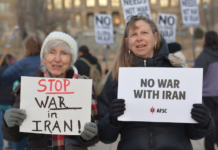
By Ema Ganivatu and Brittany Nawaqatabu in Suva
A recent webinar hosted by the Pacific Network on Globalisation (PANG) brought together minds from across the region to delve into the intricate issues of the digital economy and data value.
The webinar’s focus was clear — shed light on who was shaping the rules of the digital landscape and how these rules were taking form.
At the forefront of the discussion was the delicate matter of valuing and protecting indigenous knowledge.
PANG’s deputy coordinator, Adam Wolfenden, emphasised the need for open conversations spanning various sectors.
“It is a call to understand and safeguard the wisdom embedded in Pacific worldviews and indigenous knowledge systems as we venture into the digital world,” he said.
But amid the promise of the digital age, challenges persisted.
Wolfenden said the Pacific’s scattered islands faced the formidable obstacle of connectivity.
“Communities yearn to tap into online technologies, yet structural barriers stand tall. The connectivity challenges and structural barriers that are faced by the Pacific region are substantial and there is no easy, cheap fix,” he said.
He underscored the necessity of regional partnerships, even beyond the Pacific.
“As they sought to build advanced digital infrastructures, they realised that strength lay in unity. The journey towards progress means joining hands with fellow developing nations.
“It is a testament to the shared dream of progress that transcends geographical boundaries.”
The first step, Wolfenden believed, was awareness.
He said the Pacific region needed to be fully informed about ongoing negotiations, what rules were being carved, and how these might affect the region’s autonomy and data sovereignty.
“Often, these negotiations remain hidden from public view, shrouded in secrecy until agreements were reached. This has to change; transparency is vital,” Wolfenden said.
Beyond this, there was a call for broader discussions during the webinar. The digital economy was not just about buyers and sellers in a virtual marketplace.
It was about preserving culture, empowering communities, and ensuring that indigenous knowledge was never left vulnerable to the whims of the digital age.
Ema Ganivatu and Brittany Nawaqatabu are final year journalism students at The University of the South Pacific. They are also senior editors for Wansolwara, USP Journalism’s student training newspaper and online publications. Republished in a collaborative partnership with Asia Pacific Report.













































